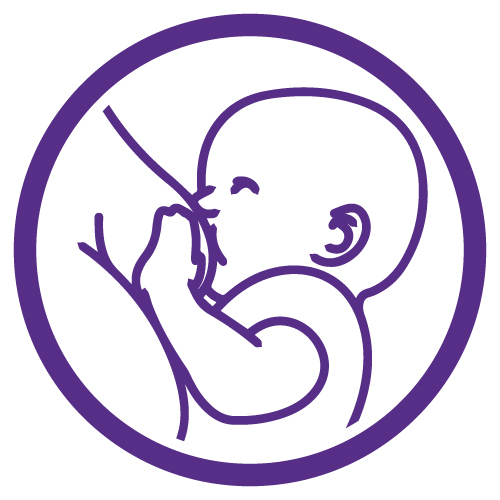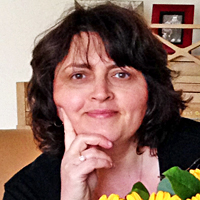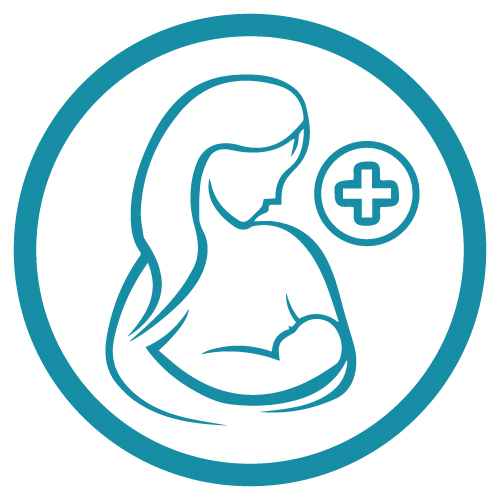 IBCLC Detailed Content Outline: Pathology Focused CERPs - Section III
IBCLC Detailed Content Outline: Pathology Focused CERPs - Section III
Access CERPs on Pathology for the IBCLC Detailed Content Outline recertification requirements. Enjoy convenient on-demand viewing of the latest Pathology focused IBCLC CERPs at your own pace.
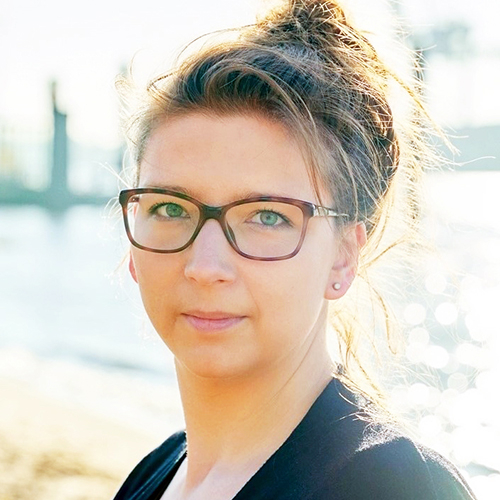
Sucking Disorders in Children with Neurological, Muscular, Genetic or Anatomical Diseases

Lina Mazzoni is a Lactation Consultant, IBCLC with a Bachelors Degree in Speech and Language Therapy. Since 2013 she has been working primarily with children and specialized in the treatment of sucking, swallowing and feeding disorders. In 2019 she became a Lactation Consultant to be able to work equivalent with the children and the mother. As a working mom she worked part time as a Lactation Consultant in a hospital in Hamburg, started her own privat practice in 2019 and since october 2021 she works exclusively in her private practice as a lactation consultant and SLT. She also works as an Instructor in lactation education and further education regarding feeding developement and disorders . Lina has two children and lives with them and her husband in Hamburg, Germany.
Topic: Sucking Disorders in Children with Neurological, Muscular, Genetic or Anatomical Diseases - [View Abstract]
For an infant, breast/chestfeeding and sucking is the normal form of feeding. If an infant is born with an underlying neurological, muscular, genetic or anatomical disease or if neurological changes occur due to complications, this form of feeding may be disturbed. Since the interaction of breathing-sucking-swallowing requires the coordination of over 60 muscles and several cranial nerves, even small changes in physiology can throw the system out of balance. Congenital-Heart-Disease, Down Syndrome or a disorder of the central nervous system due to pre- or postnatal trauma, infection or structural defect differ in their symptoms, but what they all have in common is that sucking and oral intake of food can be impaired. When working with infants or lactating parents, children with sucking disorders due to an underlying disease may also be present. It is important to know which underlying diseases can have an impact on sucking and how the children and families can be supported to enable or improve oral feeding and to be able to assess which interdisciplinary team would be useful to ensure the best possible care.


Sejal is an International Board Certified Lactation Consultant (IBCLC) in private practice and an infant massage educator in Hillsboro, Oregon, USA. She combines her professional expertise with her personal instincts as a mother and a supportive team member.
She holds a Bachelors in Microbiology and Clinical Laboratory Science.
She also brings with her the following comprehensive toolkit: Certified Educator of Infant Massage, Formerly Certified in skin-to-skin care for full term infants from the United States Institute of Kangaroo Care Certified Provider of Innate Postpartum Care.
She has presented nationally and internationally for GOLD lactation, ILCA, community colleges, local lactation organizations.
As a lactation consultant, she believes that every individual needs to be educated about breast health, optimal infant feeding and how breastfeeding support is a basic human right and can impact world health globally.
She strives to help each family by continuing to learn all she can about breast health, breastfeeding ecology, breastfeeding movement and parent-infant connection using the neurobiological and infant mental health lens.
When she’s not with her clients, you can find her at home in Hillsboro, Oregon, USA, listening to bollywood music, hanging out with friends and spending time with her family.
Topic: Calm & Regulated: Rethinking Our Approach to Latch and Positioning - [View Abstract]
Topic: Teaching Infant Facial Massage to Parents to Support a Functional Latch - [View Abstract]
Background: The benefits of massage have been shown in many research studies. Massage relieves stress, pain and muscle tension. We expect to show that the same benefits can be achieved when facial massage is used to optimize a baby’s oral structures to support a functional latch.
Method: We hope to use facial massage as a tool for babies that do not have an optimal latch. Babies born with gestational constraints, traumatic birth, exposure to stress during pregnancy or babies with tethered oral tissues may benefit from a parent massaging their face. Attendees will have access to handouts and a video link and may use their own face to practice the facial massage strokes.
Results: Building strength by oral and facial muscles, relaxing tension in the jaw, the lips, the muscles around the lips, and muscles of facial expression may help optimize the latch and hence prevent nipple damage.
Conclusion: IBCLCs can have an extra tool in their toolkit to offer to new parents. Facial massage techniques to support a functional latch can increase a parent’s confidence in caring for their baby, while increasing the levels of oxytocin and thereby promoting parent-infant bond

View Details / Enroll
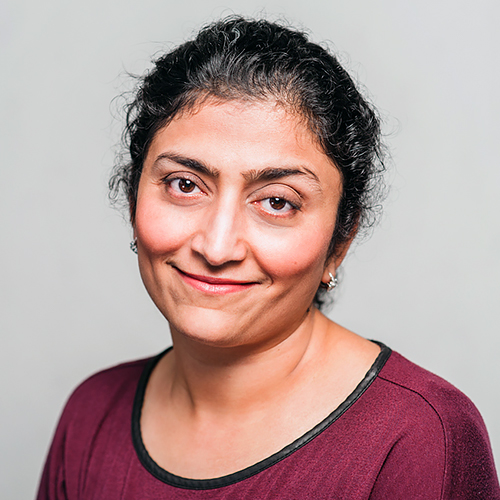
View Details / Enroll


Autumn R. Henning, MS, CCC-SLP, is a certified and licensed Speech-Language Pathologist with Certificate of Clinical Competence from the American Speech-Language Hearing Association (ASHA). She graduated Magna Cum Laude from the University of Kentucky with her Bachelor’s and Master’s Degrees in Communication Disorders. Autumn is a recognized provider by Ankyloglossia Bodyworkers, has been a guest presenter for Creating a Care Plan for Tongue Ties and delivered a webinar through Innara Health entitled Tethered Oral Tissues: What’s a Therapist to do?. She has served on local breastfeeding professional panels and delivered numerous presentations to parents and medical professionals. Autumn has completed specialty continuing education including Beckman Oral Motor, Vital Stim, and Foundations in Myofascial Release for Neck, Voice, and Swallowing as well more than a dozen professional courses on pediatric feeding and related topics. She is pursuing further education in the areas of lactation and orofacial myology. Autumn has experience working in the school system, early intervention, an ABA center and outpatient clinics including a nationally award-winning intensive feeding program. Autumn currently specializes in pediatric feeding at a non-profit outpatient clinic in Greenville, SC and serves on the board. She recently founded a continuing education company, Chrysalis Feeding, LLC. The flagship course is TOTS: Tethered Oral Tissues Specialty Training that launched this Fall.
This presentation is an introduction to tethered oral tissues and their impact on oral function beyond breastfeeding. Participants will learn about the oral skills necessary for proper speech and solid feeding and how tethered oral tissues alter this optimal function. Participants will learn how to effectively communicate with patients, families, and other medical professionals on this topic and make appropriate referrals with recognition of signs and symptoms affecting oral function.
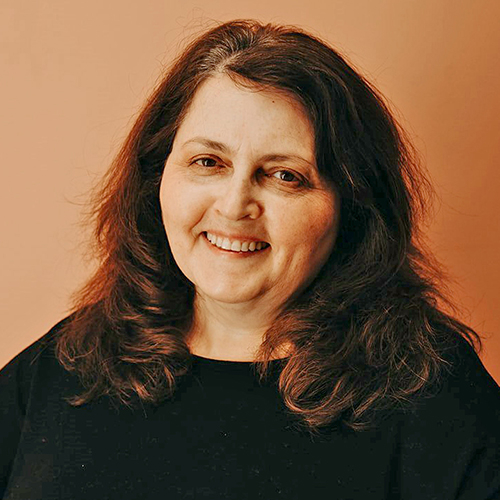
The Art of Therapeutic Breast Massage in Supporting Breastfeeding

Maya Bolman was born and raised in Minsk, Belarus. She was certified as IBCLC in 2001 and currently works as a lactation consultant at Senders Pediatrics and Breastfeeding Medicine of Northeast Ohio.
Maya is well known internationally for her work promoting hand expression and breast massage to health professionals and parents. She recognizes that teaching these basic tools helps empower them to work through breastfeeding challenges including engorgement, plugged ducts, separation from the infant, and milk supply concerns.
She has worked with Dr. Ann Witt to create an instructional video “The Basics of Breast Massage and Hand Expression” and conducts research on the effectiveness of Therapeutic Breast Massage in Lactation (TBML) both in the office and as a treatment at home for mothers.
Breast pain is one of the major causes of weaning. The likelihood of weaning increases the longer pain persists. Engorgement, plugged ducts, and mastitis are commonly associated with acute breast pain. Description of desired/achievable state: Therapeutic Breast Massage in Lactation (TBML) is one of the important measures to resolve pain quickly.
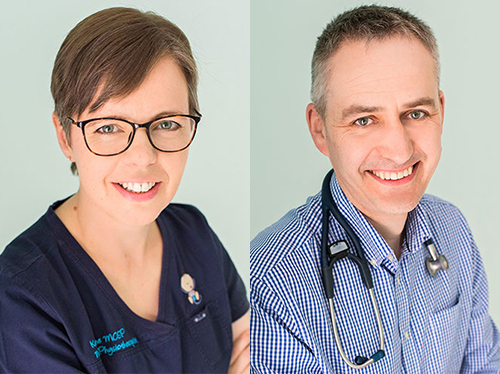
The Bigger Picture Takes a Bigger Team – Our Journey From a Tongue-Tie Division Service to "Whole-istic" Care

Kate is a Chartered Physiotherapist who works with infants, children and adults with oral myofunctional disorders.
She is Co-Director of the National Tongue Tie Centre where herself and her husband Justin, Consultant Paediatrician, lead a Team offering specialist services in a dedicated family centred environment.
Having trained at the University of Liverpool, she worked in both Leeds and Southampton, where she led and delivered the regional neonatal service for pre-term and high-risk infants, before moving to Ireland. She is a member of the Irish Society of Chartered Physiotherapists and is an IBCLC.
Kate has travelled many times over the last few years, mainly to the USA, to undertake further training in Orofacial Myofunctional Therapy, Craniosacral Therapy and Autonomic Nervous System Therapeutics.
Justin is a Consultant Paediatrician and a Fellow of the Royal College of Paediatrics and Child Health (FRCPCH) and a Fellow of the Faculty of Paediatrics, Royal College of Physicians of Ireland and is registered with the Medical Council (Number 171584) under the Specialist Division for Paediatrics.
He has spent thousands of hours on continuing education having attended numerous conferences and courses on tongue-tie, predominantly in the States, in order to be at the forefront of care for infants, children, and adults. He is also a board member of the International Consortium of Ankyloglossia Professionals (ICAP).
Justin's interest in Tongue Tie dates back to 1999 when his first daughter was born. At 5 days old she had her tongue tie divided in Southampton. Six children and four tongue ties later, he returned to Southampton to start his training in how to divide tongue ties himself. He has been treating tongue ties since 2008 and running a dedicated tongue tie clinic since 2010 and established the National Tongue Tie Centre with his wife Kate, Physiotherapist in 2017. Currently, Justin, Kate and the Team would assess and manage Tethered Oral Tissues in over one thousand children and adults each year.
The management of Ankyloglossia has historically been controversial. To this day, the recognition of what makes a tongue frenulum restrictive such that it is ankyloglossia and how infants should be managed before, during and after surgery still generates debate between the professions involved in their care.
We will take you on our journey from awareness, through training and experience, always striving to optimise management of Ankyloglossia for infants and their families.
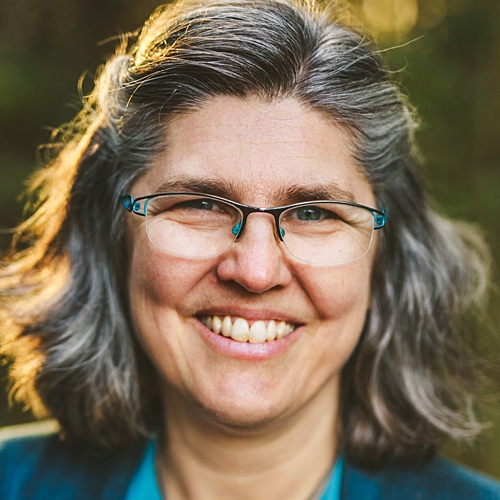
The Compensatory Mechanics of Suck for Babies with Oral Tethering: How to Identify and Treat after Revision

Ellen Chetwynd PhD MPH RN BSN IBCLC is a breastfeeding researcher, lactation consultant, and advocate. Her goal is to provide excellent care that is innovative and effective. Her clinical care is equally informed by, and leads to, her research and collaborations with fellow scientists. She is an advocate of breastfeeding families of all shapes, as well as the providers who care for them. Through her work as Chair of the North Carolina Breastfeeding Coalition she has contributed to the statewide work to provide Medicaid reimbursement in North Carolina, successfully funded a project to support clinics seeking to become breastfeeding friendly and increase access to equitable support of breastfeeding, implemented a statewide breastfeeding summit, and created an interactive statewide resource listing for breastfeeding resources at the county level. In her lactation consulting work, she is sought out by parents and clinicians for her work with difficult cases of pain and dysfunctional infant suck. She is a prolific writer, and her research and publications cover topics including breastfeeding and metabolic health, reimbursement for lactation consulting, LGBTQI+ families, and breastfeeding research methodology. She recently created and co-taught a full day workshop on breastfeeding research methods, and gets fired up about the numbers behind what we do to support families. At Next Level Lactation LLC, she and her partners provide advanced lactation educational opportunities.
Babies with oral tethering don't have access to the full range of motion needed to create negative pressure at the back of their mouths so they can draw milk out of the effectively and painlessly. We can all assess the latch, but what is happening with the tongue, the breast and nipple, and the other muscles involved in the mechanics of suck after the baby’s mouth closes over the breast? How do we identify compensatory mechanisms convince babies to change them with the broader mobility they have after frenotomy? This presentation will teach participants how to visualize/experience normal infant suck. Compensatory suck mechanisms are the techniques that infants use during feeding when they don’t have access to adequate movement in their tongue and floor of their mouth. Infants are creative, and the strategies they develop are varied. Participants will learn how to identify and categorize compensatory mechanisms and use clinical skills to differentiate and assess muscle tension related to overuse and suck mechanics at the breast. A unique set of clinical techniques that can be used by the lactation consultant and taught to the mother addressing each category of compensatory suck mechanics will be introduced and illustrated through case studies.
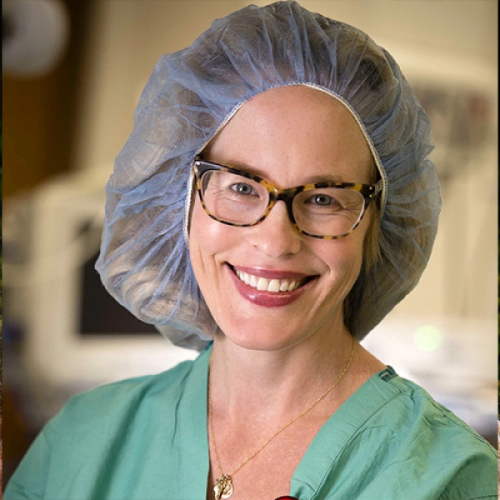

Katrina B. Mitchell, MD is a board-certified general surgeon, fellowship-trained breast surgical oncologist, and international board certified lactation consultant (IBCLC) whose practice includes the care and surgery of women with breast cancer and benign breast disease. She also treats maternal complications of lactation, and has a special interest in pregnancy and postpartum breast cancer. She resides in Santa Barbara, California and practices at the Ridley Tree Cancer Center at Sansum Clinic. She enjoys reading, traveling, and spending time with her son at the beach. More information about her clinical and educational interests is available at katrinamitchell.org.
This lecture reviews nipple and breast pain during pregnancy and both the early and late postpartum periods. It describes the anatomy and physiology of the breast and nipple areolar complex, and explores why pain during pregnancy and lactation is so common. Specific topics include the relationship between engorgement and infant latch; pump and other nipple trauma; hypo- and hyperlactation and how pain presents in these populations; vasospasm; dermatitis; nipple blebs; and, mastitis and plugging. The lecture also covers infant considerations and defines the lack of evidence for fungal infections as a significant contributor to pain. It delineates identification and treatment of functional pain and overlap of perinatal mood and anxiety disorders with pain.
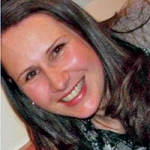
The Effects of Stress On The Mother-Baby Dyad

Elissa is a passionate osteopath, business owner and mentor.
Elissa has worked as an Osteopath in private practice in Melbourne since graduating in 1998.
She started her own multidisciplinary clinic in 2002, combining osteopathy with, massage, naturopathy, kinesiology and counselling. In 2015 Elissa merged her business with a local podiatrist and started The Balwyn Health Hub.
She is well known for her treatment of children and pregnant women although her patient base also includes a strong focus for; the family unit, the elderly, performers, athletes and the chronically ill. Her special interest in osteopathic diagnostic reasoning often helps patients understand why chronic dysfunctions are not healing.
Elissa's passion for working with pregnant women, babies and children allows close professional relationships with lactation consultants, midwives and doulas which has led to her guest lecturing at a number of multidisciplinary conferences.
The stresses faced by each new mother will reflect her unique experience of conception, pregnancy and birth and these stresses can significantly influence the mother-baby bond. Even the most well researched birth plan can be subject to variations and complications that will inevitably put additional stress on the mother. Difficulty breastfeeding is often one of the first signs of stress on the mother-baby unit; it’s success or failure can drastically influence the early bonds made between the dyad. The neuroendocrine system has many ways of responding to these stresses and knowledgable manual therapists have an opportunity to support both the mother and baby towards optimal physiology.
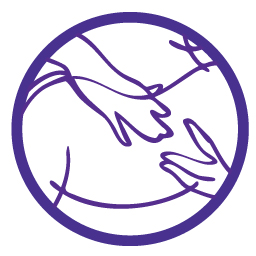
View Details / Enroll
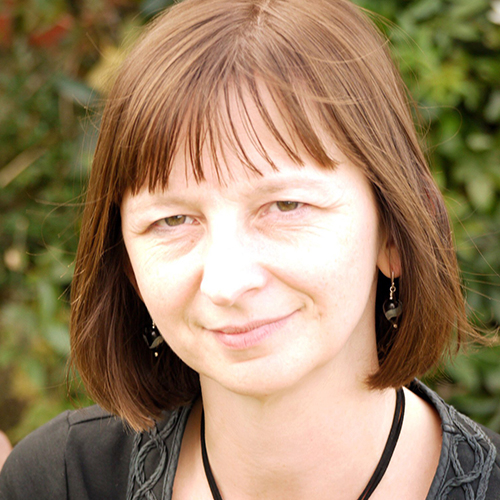

Sarah is a Registered General Nurse, Health Visitor, International Board Certified Lactation Consultant and Tongue-tie Practitioner with a busy private practice based in Cambridgeshire, UK. Sarah worked as a volunteer breastfeeding counsellor for the Association of Breastfeeding Mothers for several years and continues to run a weekly breastfeeding support group as a volunteer. Sarah is a founder member and former Chair of The Association of Tongue-tie Practitioners in the UK and is the author of the book, ‘Why Tongue-tie Matters’. She offers an online course in tongue-tie and infant feeding in association with Babyem and provides education on infant feeding and tongue-tie for healthcare professionals and breastfeeding supporters in the public, private and volunteer sectors.
Topic: Is This a Tongue-Tie: How Do We Decide? - [View Abstract]
Topic: The Elephant In The Room - Bleeding Post Tongue-Tie Division - [View Abstract]
This presentation explores professional and lay perspectives on bleeding post tongue-tie division. It will examine what constitutes abnormal bleeding and why this may occur. Risk assessment and reduction will be discussed. Management strategies that have been found to be effective, along with the development of guidelines on bleeding by the Association of Tongue-tie Practitioners will be described.
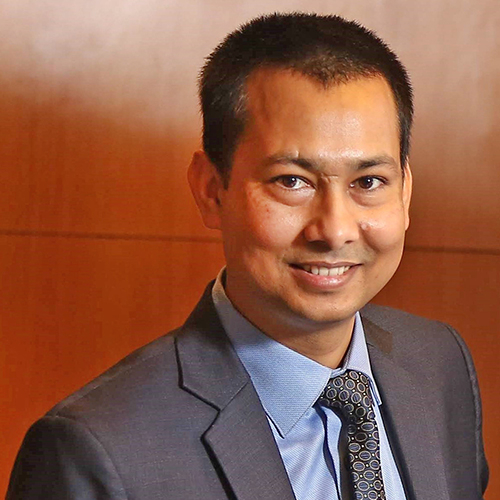
The Golden Hour of Neonatal Life: Improving Outcomes Through Evidence-Based Interventions

Dr. Ankur Bio Update - Dr. Kumar Ankur, MD, DNB is working as an Associate Director & Head of the Department of Neonatology at BLK MAX Super Speciality Hospital Delhi, India. He has been working in the field of neonatology with private and non-goverment organisations for improving neonatal healthcare in the country. He is the national faculty and trainer for FBNC (Facility based neonatal care), Neonatal Resuscitation, Kangarroo Mother Care (KMC) and the national assessor for Neonatology Fellowship accreditation programme of India. He has been invited as an expert speaker, faculty, chairpersons for various national and state level conferences and workshops. He has many publications in national & international journal and authored many chapters, guidelines published by Indian Academy of Pediatrics & National Neonatology of Forum Delhi & India. He is also the co-editor of Handbook of Neonatal Clinical Practices. He is also running training program in neonatal Fellowship for postgraduate students & neonatal nurses. Currently he is also the Secretary of prestigious National Neonatology Forum, Delhi. National Neonatology Forum (NNF) is a strong and large body of more than 8000 neonatologists across India and abroad. NNF has been actively involved in advocacy, policy making, research and ensuring quality health care to newborn for the last 4 decades. He had been past Secretary (2014) & President (2018) of Indian Academy of Pediatrics (IAP), Central Delhi Branch.
Topic: Tongue-Tie and the NICU: A Neonatologist Perspective - [View Abstract]
Prematurity is the leading cause of death across the globe, mainly in low resource settings. Infants born at less than 32 weeks gestation, are prone to developing hypothermia, hypoglycemia, and hospital acquired infections after birth. For them, the initial 60 minutes of holistic approach is crucial for long-term outcomes. The “Golden Hour” of neonatal life is defined as the first hour of post-natal life in both preterm and term neonates. This concept includes practicing particular evidence based interventions in the initial sixty minutes of postnatal life for better long-term outcomes like marked reduction in hypothermia, hypoglycemia, intraventricular hemorrhage (IVH), bronchopulmonary dysplasia (BPD), and retinopathy of prematurity (ROP). This presentation will provide a look at the various components of neonatal care that are included in the “Golden hour” of preterm and term neonatal care. Healthcare professionals attending the birth of high risk infants like VLBW (very low birth weight, less than 1500 grams) or high-risk term neonates should be well trained in attending such deliveries and should be able to implement all the management protocols during the golden first 60 minutes of life.
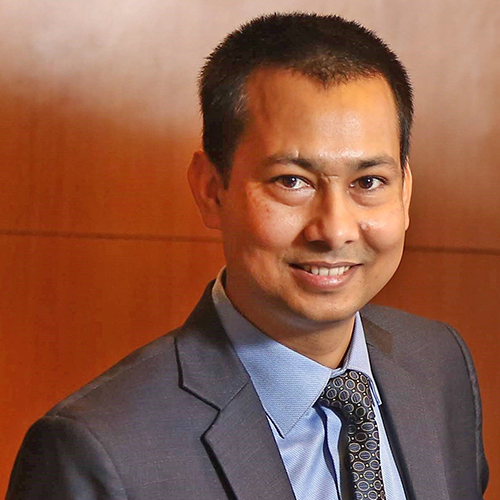
View Details / Enroll



